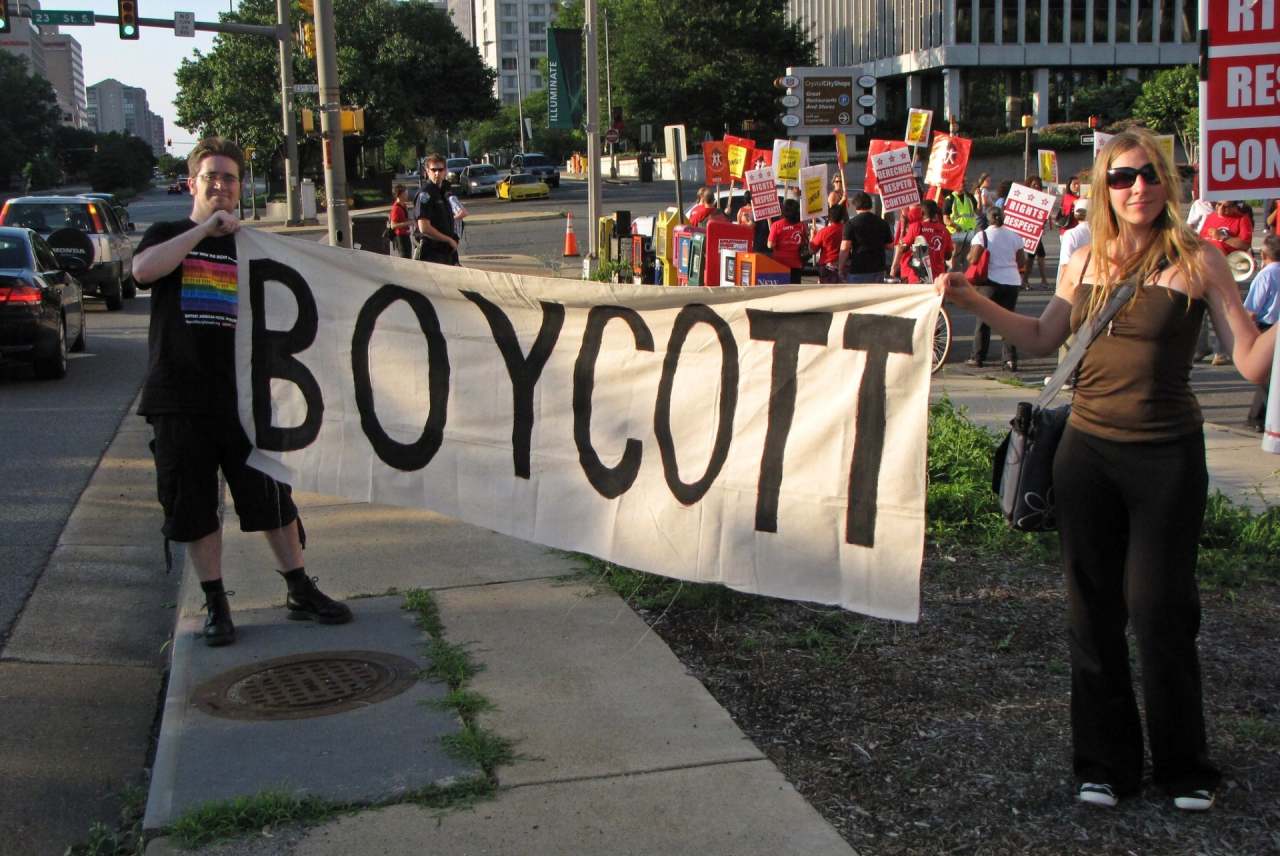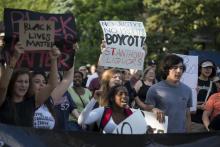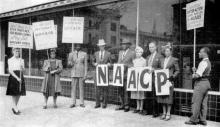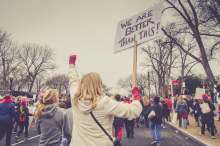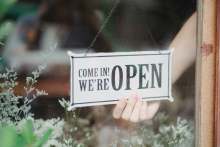There are many reasons why we might want to avoid some corporations, from tax dodging to human rights violations.
In this article, we take a look at some famous examples of boycott calls, as well as exploring the thorny question of whether and when we should be boycotting.
What does boycott mean?
A boycott generally involves pledging not to buy from a company, based on a specific ethical issue.
In the past, boycotts have been called against cosmetics brand L’Oreal over its animal testing policy, Barclays Bank over its investments in fossil fuels, and online giant Amazon over its egregious tax avoidance, amongst many others.
It can also involve withdrawing social support from an institution: for example, academics might refuse to speak at a certain university based on its actions, or prize winners refuse to accept an award at a specific event.
For example, in July 2023, a host of nominees and judges for the British LGBT Awards, including comedian Joe Lycett and drag artist Divina de Campo, withdrew from the prize-giving after fossil fuel giants Shell and BP were accepted as sponsors. The prize was forced to make a U-turn, dropping their sponsorship overnight.
Boycotts can emerge as a grassroots effort online, but more often they are called by a specific campaign group that asks consumers to pledge support.
Do boycotts work?
Boycotts have seen some big successes in the past.
In December 2018, HSBC bank divested from Israeli drone manufacturer Elbit Systems – known for selling weapons to the Israeli military used in attacks on Palestinian civilians. More than 24,000 supporters of human rights advocacy group War on Want emailed the bank asking it to end its investments.
Clothing company Canada Goose announced it would stop selling fur by the end of 2021, following boycotts led by animal rights group Peta.
In 2021, beer company Kirin ended its joint operations with the Myanmar military, after a boycott called by The International Campaign for the Rohingya (IRC). The call was in response to the military’s ethnic cleansing of thousands of Muslim-minority Rohingya people.
South Africa Boycott
Perhaps the most famous boycott was against South Africa in opposition to the apartheid.
South African exiles and their supporters called for a boycott of products from the country in 1959 – in protest against the racial segregation enforced by white colonial politicians and discrimination and violence against Black people in the country.
The boycott initially focused on fruit and vegetables, but later targeted chains like Marks & Spencer and Next – causing some companies to pull South African products from their shelves. For the next 35 years, the boycott was a central part of the anti-apartheid campaign.
After decades of grassroots organising – as well as pressure from international leaders – apartheid was ended in 1994.
The threat of a boycott
Sometimes, even the threat of a boycott can be enough to force a u-turn.
In November 2017, Boots dropped the price of its own-brand emergency contraceptive pill, which cost much more than at other retailers, after the British Pregnancy Advisory Service threatened to call a boycott of the company. Boots had previously said that it would not drop the price because it did not “want to be accused of incentivising inappropriate use.”
Even where a boycott doesn’t directly force a change it can play a crucial role in showing solidarity and removing a company’s social license. It can be an effective way to vocally condemn malpractice and spread awareness about the harm a company may be causing.
Consumers have boycotted Nestlé since the 1970s for its irresponsible marketing of baby milk formula. The company continues to be accused of contributing to babies’ death and suffering through its marketing practices to this day. Nonetheless, the boycott has helped raise awareness about the dangers of irresponsible marketing of baby milk, and has tainted Nestlé’s name in many countries.
Our article 'History of successful boycotts' has an up-to-date record of boycott successes.
